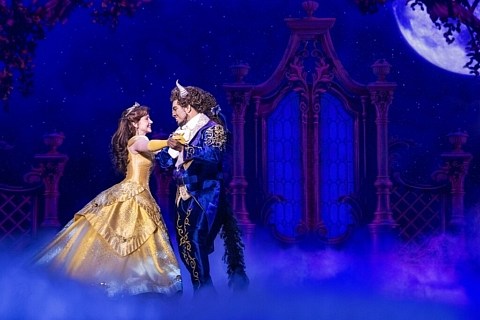The anticipation for Donald Glover’s TV series, “Atlanta,” was high before it premiered, but not many expected the series to shake up television the way it has.
Not since the previous FX series “Louie”—a safe pick for the best TV show of the decade—has there been a TV series as purely fascinating as “Atlanta.”
Centered around the lives of manager Earn Marks (Glover), his cousin—on-the-rise rapper Alfred (Brian Tyree Henry)—and Alfred’s right-hand man, Darius (Keith Stanfield), “Atlanta” has a core of three detailed, singular characters serviced by excellent performances from the actors, a steady stream of jokes that tend to be boxed out of sitcoms with a distinct visual tone.
Most importantly, “Atlanta” feels like nothing else on TV. Here are three reasons why.
The series offers a new perspective.
When asked what attracted him toward being executive producer for “Atlanta,” famed comedy writer Paul Simms stated it was the perspective offered by the series. The scripts were written mostly by Glover and his younger brother Stephen. The episodes were mostly helmed by first-time TV director Hiro Murai.
It’s set in the titular capital of Georgia at a location where almost everyone is black—a contrast to the primarily white casting conducted by most TV series. In these components, “Atlanta” hums with fresh voices informing its tone.
Muted on its surfaces but crackling with dialogue and opinion, the series channels compassion into the mundane facets of the life of those that work pay check to pay check, to the point where half the episodes so far have hinged on a conflict caused by a lack of income. Earn barters his way up to more money for his daughter, while his baby-mama, Van (Zazie Beetz), tries to avoid failing a drug test to keep her job.
“Atlanta” is unflinching at its look on poverty, finding ways to infuse comedy into it without undermining the characters’ struggles.
It doesn’t tackle social issues—it lives in them.
Tackling social issues gets you far in comedy these days, with some of the most celebrated sitcoms and talk shows on the air lauded for how they address the state of America and the world around it. “Atlanta” isn’t about social issues, but it still finds an innovative way to address them that is miles ahead of its contemporaries. Where shows like Netflix’s “Master of None” or ABC’s “Black-ish” employ social issues as the center of individual episodes, “Atlanta” weaves them in as the status quo for the world its characters are living in.
In the second episode, “Streets on Lock,” Earn witnesses police brutality toward a mentally disabled arrestee—an incident that is forgotten the next time he appears on screen, where he drops some wisdom about the sexual spectrum. While “Master of None” and “Black-ish” prop themselves toward making a difference, “Atlanta” only wants to broadcast that these issues are a constant for many people.
Making a statement about the hardships of society is easy—living in them is hard.
“Atlanta” is confident in its bizarre world building.
“Atlanta” is a series completely assured in its efforts. When the series casted a black actor to play Justin Bieber in an episode, questions arose what the purpose for it was. Was it the color-blind casting techniques established by “Louie”? Perhaps it was a statement about the different dynamics that face white celebrities with those of a minority? An example of the surrealism promised by Glovers’ declaration that the series was “like ‘Twin Peaks’ with rappers”? A gag?
The unclear reason behind it does assert one thing: “Atlanta” is impressively confident in the world they’re creating. It can open up a can of unabashed weirdness—such was the appearance of the bow-tied man on the bus offering Earn his Nutella, or subjecting viewers to cold-blooded murder from the rap group Migos with only a whispered conversation. It stirs up intrigue rather than turning viewers away.
There’s a mystique behind “Atlanta” that can’t help but be sought to unravel, and it’s the backbone of what makes the show so compelling.
10/10





Recent Comments